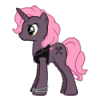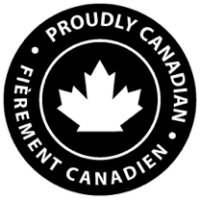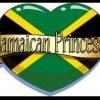-
Posts
54 -
Joined
-
Last visited
Reputation Activity
-
 narnia got a reaction from Lynkali in trying to understand the CSC
narnia got a reaction from Lynkali in trying to understand the CSC
let's think about possible scenarios for what recently happens with CSC approvals.
1. some workers, maybe newbies, picked up a random pile of K-1 applications and eagerly got to work on them. which would explain the "normal" pace of a few approvals a day.
the fact that the dates of the NOA1s are so close to each other happens to be a coincidence, because the pile that got picked up happened to be from late november.
2. CSC is trying to make their metrics look good. either so people stop complaining or can't complain. their attitude could shift to "we are at a 5 month average anyway, so stop calling us". which would of course only apply to concerned applicants from november and later. however if they want to reach a lower average processing time, it would mean filers from october and earlier have every right to be granted service requests. which would cause the CSC even more extra work.
i personally have no idea what system they work with and how this could really be beneficial to them.
3. those cases were expedites. but we know from forum activity that this fact does not apply on all of them.
what can be said for sure is, that if they keep playing this game, they can expect some angry phone calls. from me for sure.
they only give july - october filers every reason to get riled up and they even lower their system of defense by processing later months. there's no more excuses.
what else could be a reason? can someone think of an explanation for this mystery?
-
 narnia got a reaction from Baklava in contacted Mr. Neufeld, director of CSC
narnia got a reaction from Baklava in contacted Mr. Neufeld, director of CSC
i wrote an e-mail regarding the slowdown at CSC to Donald Neufeld, its director.
surprisingly, i got a response! but it was merely what i suspect to be an automatic reply stating, and i quote:
I am out of the office until April 2nd. Please forward any time sensitive messages to Susan Arroyo.
Thanks,
Don Neufeld
so i googled this Ms. Arroyo and found out she is chief of staff of service centre operations. and her office is in Washington DC.
i don't know if that will get me any further, but i forwarded my e-mail to her, adding Mr. Neufeld sent me her direction.
now i'm waiting for the next automatic response.
thought this might be interesting information to share.
-
 narnia got a reaction from Sheepwalk in contacted Mr. Neufeld, director of CSC
narnia got a reaction from Sheepwalk in contacted Mr. Neufeld, director of CSC
i don't know if flooding is the key. but i figure it could make an impact, if everyone who is affected by this decrease in approvals respectfully and individually states their case in a letter or an e-mail.
it seems more appropriate than mass messages. also if a mail is sent once, maybe twice, not a dozen times. that seems like harrassment.
but yes, i agree with your spirit!
i had to play detective to find their information, but these are the mail addresses i discovered:
donald.w.neufeld@uscis.dhs.gov
susan.k.arroyo@uscis.dhs.gov
-
 narnia got a reaction from Sheepwalk in contacted Mr. Neufeld, director of CSC
narnia got a reaction from Sheepwalk in contacted Mr. Neufeld, director of CSC
it's hard to tell if customer's actions will show any results at all. they'll likely not change anything about their work ethics, but there still is this tiny speck of hope. i think at this point it doesn't matter anymore if you have waited for 8 months or just for 1. the predictions for the future are grimm, and as you said yourself, i refuse to sit on my behind and quietly watch how unfair this situation developed.
i encourage everybody to take an action. politely and diplomatic though.
-
 narnia got a reaction from kintu in CSC CLOSED DUE TO PLUMBING ISSUES
narnia got a reaction from kintu in CSC CLOSED DUE TO PLUMBING ISSUES
that explains a lot! guess they used the K-1s as toilet paper and they didn't flush so well.
-
 narnia got a reaction from Sheepwalk in CSC CLOSED DUE TO PLUMBING ISSUES
narnia got a reaction from Sheepwalk in CSC CLOSED DUE TO PLUMBING ISSUES
that explains a lot! guess they used the K-1s as toilet paper and they didn't flush so well.
-
 narnia got a reaction from Sam and Fen in CSC CLOSED DUE TO PLUMBING ISSUES
narnia got a reaction from Sam and Fen in CSC CLOSED DUE TO PLUMBING ISSUES
that explains a lot! guess they used the K-1s as toilet paper and they didn't flush so well.
-
 narnia got a reaction from nicolasandres in CSC CLOSED DUE TO PLUMBING ISSUES
narnia got a reaction from nicolasandres in CSC CLOSED DUE TO PLUMBING ISSUES
that explains a lot! guess they used the K-1s as toilet paper and they didn't flush so well.
-
 narnia got a reaction from AmyWrites in CSC CLOSED DUE TO PLUMBING ISSUES
narnia got a reaction from AmyWrites in CSC CLOSED DUE TO PLUMBING ISSUES
that explains a lot! guess they used the K-1s as toilet paper and they didn't flush so well.
-
 narnia got a reaction from Rob & Monika in CSC CLOSED DUE TO PLUMBING ISSUES
narnia got a reaction from Rob & Monika in CSC CLOSED DUE TO PLUMBING ISSUES
that explains a lot! guess they used the K-1s as toilet paper and they didn't flush so well.
-
 narnia got a reaction from didopage in CSC CLOSED DUE TO PLUMBING ISSUES
narnia got a reaction from didopage in CSC CLOSED DUE TO PLUMBING ISSUES
that explains a lot! guess they used the K-1s as toilet paper and they didn't flush so well.
-
 narnia got a reaction from CarlosAndSveta in Asking for advice....Having a baby soon.
narnia got a reaction from CarlosAndSveta in Asking for advice....Having a baby soon.
it's a proven fact that a child's earliest years are possible the most important ones when i comes to learning. an infant's brain has around 2 times more synapses than an adult's brain and the years 0-3 are probably the most flourishing ones concerning learning and influences from the surrounding.
also stimuli from the surroundings help the infants brain to organise. concerning language: in the first year of a child's life they learn with their entire brain, before centres are built and certain areas are responsible for certain tasks. so when exposed to a second language from birth on, the language centre in the brain gets formed and organised with 2 languages on file already. this makes it way easier for the child knowing 2 languages when growing up. whilst a later exposure to the second tongue makes it harder for the child to memorise it.
since an infant's brain is not yet departed in areas, it reacts like a sponge to imformation and gladly soaks it all up.
so if you want your child to be bilingual it is much easier to teach it from the very start. it's also recommended that each parent uses one language to talk to their child, so e.g. the mother uses her native tongue and the father his. this is proven to be the most flourishing way to have a child grow up bilingual.
my mother is a pedagogue and and made all kinds of experiences with bilingual kids. she noticed that parents who don't teach their children their native tongue from the start, usually have a hard time teaching them later.
from my personal experience i know this: my cousin's husband speaks czech, but he didn't teach his kids from start on, and now his son is 7 years old and doesn't know a single word and refuses to learn it even.
so in my opinion, i'd start right away and not wait.
-
 narnia got a reaction from VeeNDee in Asking for advice....Having a baby soon.
narnia got a reaction from VeeNDee in Asking for advice....Having a baby soon.
it's a proven fact that a child's earliest years are possible the most important ones when i comes to learning. an infant's brain has around 2 times more synapses than an adult's brain and the years 0-3 are probably the most flourishing ones concerning learning and influences from the surrounding.
also stimuli from the surroundings help the infants brain to organise. concerning language: in the first year of a child's life they learn with their entire brain, before centres are built and certain areas are responsible for certain tasks. so when exposed to a second language from birth on, the language centre in the brain gets formed and organised with 2 languages on file already. this makes it way easier for the child knowing 2 languages when growing up. whilst a later exposure to the second tongue makes it harder for the child to memorise it.
since an infant's brain is not yet departed in areas, it reacts like a sponge to imformation and gladly soaks it all up.
so if you want your child to be bilingual it is much easier to teach it from the very start. it's also recommended that each parent uses one language to talk to their child, so e.g. the mother uses her native tongue and the father his. this is proven to be the most flourishing way to have a child grow up bilingual.
my mother is a pedagogue and and made all kinds of experiences with bilingual kids. she noticed that parents who don't teach their children their native tongue from the start, usually have a hard time teaching them later.
from my personal experience i know this: my cousin's husband speaks czech, but he didn't teach his kids from start on, and now his son is 7 years old and doesn't know a single word and refuses to learn it even.
so in my opinion, i'd start right away and not wait.
-
 narnia got a reaction from NikLR in Asking for advice....Having a baby soon.
narnia got a reaction from NikLR in Asking for advice....Having a baby soon.
it's a proven fact that a child's earliest years are possible the most important ones when i comes to learning. an infant's brain has around 2 times more synapses than an adult's brain and the years 0-3 are probably the most flourishing ones concerning learning and influences from the surrounding.
also stimuli from the surroundings help the infants brain to organise. concerning language: in the first year of a child's life they learn with their entire brain, before centres are built and certain areas are responsible for certain tasks. so when exposed to a second language from birth on, the language centre in the brain gets formed and organised with 2 languages on file already. this makes it way easier for the child knowing 2 languages when growing up. whilst a later exposure to the second tongue makes it harder for the child to memorise it.
since an infant's brain is not yet departed in areas, it reacts like a sponge to imformation and gladly soaks it all up.
so if you want your child to be bilingual it is much easier to teach it from the very start. it's also recommended that each parent uses one language to talk to their child, so e.g. the mother uses her native tongue and the father his. this is proven to be the most flourishing way to have a child grow up bilingual.
my mother is a pedagogue and and made all kinds of experiences with bilingual kids. she noticed that parents who don't teach their children their native tongue from the start, usually have a hard time teaching them later.
from my personal experience i know this: my cousin's husband speaks czech, but he didn't teach his kids from start on, and now his son is 7 years old and doesn't know a single word and refuses to learn it even.
so in my opinion, i'd start right away and not wait.
-
 narnia got a reaction from mrsSpitze in Asking for advice....Having a baby soon.
narnia got a reaction from mrsSpitze in Asking for advice....Having a baby soon.
it's a proven fact that a child's earliest years are possible the most important ones when i comes to learning. an infant's brain has around 2 times more synapses than an adult's brain and the years 0-3 are probably the most flourishing ones concerning learning and influences from the surrounding.
also stimuli from the surroundings help the infants brain to organise. concerning language: in the first year of a child's life they learn with their entire brain, before centres are built and certain areas are responsible for certain tasks. so when exposed to a second language from birth on, the language centre in the brain gets formed and organised with 2 languages on file already. this makes it way easier for the child knowing 2 languages when growing up. whilst a later exposure to the second tongue makes it harder for the child to memorise it.
since an infant's brain is not yet departed in areas, it reacts like a sponge to imformation and gladly soaks it all up.
so if you want your child to be bilingual it is much easier to teach it from the very start. it's also recommended that each parent uses one language to talk to their child, so e.g. the mother uses her native tongue and the father his. this is proven to be the most flourishing way to have a child grow up bilingual.
my mother is a pedagogue and and made all kinds of experiences with bilingual kids. she noticed that parents who don't teach their children their native tongue from the start, usually have a hard time teaching them later.
from my personal experience i know this: my cousin's husband speaks czech, but he didn't teach his kids from start on, and now his son is 7 years old and doesn't know a single word and refuses to learn it even.
so in my opinion, i'd start right away and not wait.
-
 narnia got a reaction from besaangel in Asking for advice....Having a baby soon.
narnia got a reaction from besaangel in Asking for advice....Having a baby soon.
it's a proven fact that a child's earliest years are possible the most important ones when i comes to learning. an infant's brain has around 2 times more synapses than an adult's brain and the years 0-3 are probably the most flourishing ones concerning learning and influences from the surrounding.
also stimuli from the surroundings help the infants brain to organise. concerning language: in the first year of a child's life they learn with their entire brain, before centres are built and certain areas are responsible for certain tasks. so when exposed to a second language from birth on, the language centre in the brain gets formed and organised with 2 languages on file already. this makes it way easier for the child knowing 2 languages when growing up. whilst a later exposure to the second tongue makes it harder for the child to memorise it.
since an infant's brain is not yet departed in areas, it reacts like a sponge to imformation and gladly soaks it all up.
so if you want your child to be bilingual it is much easier to teach it from the very start. it's also recommended that each parent uses one language to talk to their child, so e.g. the mother uses her native tongue and the father his. this is proven to be the most flourishing way to have a child grow up bilingual.
my mother is a pedagogue and and made all kinds of experiences with bilingual kids. she noticed that parents who don't teach their children their native tongue from the start, usually have a hard time teaching them later.
from my personal experience i know this: my cousin's husband speaks czech, but he didn't teach his kids from start on, and now his son is 7 years old and doesn't know a single word and refuses to learn it even.
so in my opinion, i'd start right away and not wait.
-
 narnia got a reaction from PalestineMyHeart in Asking for advice....Having a baby soon.
narnia got a reaction from PalestineMyHeart in Asking for advice....Having a baby soon.
it's a proven fact that a child's earliest years are possible the most important ones when i comes to learning. an infant's brain has around 2 times more synapses than an adult's brain and the years 0-3 are probably the most flourishing ones concerning learning and influences from the surrounding.
also stimuli from the surroundings help the infants brain to organise. concerning language: in the first year of a child's life they learn with their entire brain, before centres are built and certain areas are responsible for certain tasks. so when exposed to a second language from birth on, the language centre in the brain gets formed and organised with 2 languages on file already. this makes it way easier for the child knowing 2 languages when growing up. whilst a later exposure to the second tongue makes it harder for the child to memorise it.
since an infant's brain is not yet departed in areas, it reacts like a sponge to imformation and gladly soaks it all up.
so if you want your child to be bilingual it is much easier to teach it from the very start. it's also recommended that each parent uses one language to talk to their child, so e.g. the mother uses her native tongue and the father his. this is proven to be the most flourishing way to have a child grow up bilingual.
my mother is a pedagogue and and made all kinds of experiences with bilingual kids. she noticed that parents who don't teach their children their native tongue from the start, usually have a hard time teaching them later.
from my personal experience i know this: my cousin's husband speaks czech, but he didn't teach his kids from start on, and now his son is 7 years old and doesn't know a single word and refuses to learn it even.
so in my opinion, i'd start right away and not wait.
-
 narnia got a reaction from hikergirl in Asking for advice....Having a baby soon.
narnia got a reaction from hikergirl in Asking for advice....Having a baby soon.
it's a proven fact that a child's earliest years are possible the most important ones when i comes to learning. an infant's brain has around 2 times more synapses than an adult's brain and the years 0-3 are probably the most flourishing ones concerning learning and influences from the surrounding.
also stimuli from the surroundings help the infants brain to organise. concerning language: in the first year of a child's life they learn with their entire brain, before centres are built and certain areas are responsible for certain tasks. so when exposed to a second language from birth on, the language centre in the brain gets formed and organised with 2 languages on file already. this makes it way easier for the child knowing 2 languages when growing up. whilst a later exposure to the second tongue makes it harder for the child to memorise it.
since an infant's brain is not yet departed in areas, it reacts like a sponge to imformation and gladly soaks it all up.
so if you want your child to be bilingual it is much easier to teach it from the very start. it's also recommended that each parent uses one language to talk to their child, so e.g. the mother uses her native tongue and the father his. this is proven to be the most flourishing way to have a child grow up bilingual.
my mother is a pedagogue and and made all kinds of experiences with bilingual kids. she noticed that parents who don't teach their children their native tongue from the start, usually have a hard time teaching them later.
from my personal experience i know this: my cousin's husband speaks czech, but he didn't teach his kids from start on, and now his son is 7 years old and doesn't know a single word and refuses to learn it even.
so in my opinion, i'd start right away and not wait.
-
 narnia got a reaction from Brit Abroad in Asking for advice....Having a baby soon.
narnia got a reaction from Brit Abroad in Asking for advice....Having a baby soon.
it's a proven fact that a child's earliest years are possible the most important ones when i comes to learning. an infant's brain has around 2 times more synapses than an adult's brain and the years 0-3 are probably the most flourishing ones concerning learning and influences from the surrounding.
also stimuli from the surroundings help the infants brain to organise. concerning language: in the first year of a child's life they learn with their entire brain, before centres are built and certain areas are responsible for certain tasks. so when exposed to a second language from birth on, the language centre in the brain gets formed and organised with 2 languages on file already. this makes it way easier for the child knowing 2 languages when growing up. whilst a later exposure to the second tongue makes it harder for the child to memorise it.
since an infant's brain is not yet departed in areas, it reacts like a sponge to imformation and gladly soaks it all up.
so if you want your child to be bilingual it is much easier to teach it from the very start. it's also recommended that each parent uses one language to talk to their child, so e.g. the mother uses her native tongue and the father his. this is proven to be the most flourishing way to have a child grow up bilingual.
my mother is a pedagogue and and made all kinds of experiences with bilingual kids. she noticed that parents who don't teach their children their native tongue from the start, usually have a hard time teaching them later.
from my personal experience i know this: my cousin's husband speaks czech, but he didn't teach his kids from start on, and now his son is 7 years old and doesn't know a single word and refuses to learn it even.
so in my opinion, i'd start right away and not wait.
-
 narnia got a reaction from BSquared in Asking for advice....Having a baby soon.
narnia got a reaction from BSquared in Asking for advice....Having a baby soon.
it's a proven fact that a child's earliest years are possible the most important ones when i comes to learning. an infant's brain has around 2 times more synapses than an adult's brain and the years 0-3 are probably the most flourishing ones concerning learning and influences from the surrounding.
also stimuli from the surroundings help the infants brain to organise. concerning language: in the first year of a child's life they learn with their entire brain, before centres are built and certain areas are responsible for certain tasks. so when exposed to a second language from birth on, the language centre in the brain gets formed and organised with 2 languages on file already. this makes it way easier for the child knowing 2 languages when growing up. whilst a later exposure to the second tongue makes it harder for the child to memorise it.
since an infant's brain is not yet departed in areas, it reacts like a sponge to imformation and gladly soaks it all up.
so if you want your child to be bilingual it is much easier to teach it from the very start. it's also recommended that each parent uses one language to talk to their child, so e.g. the mother uses her native tongue and the father his. this is proven to be the most flourishing way to have a child grow up bilingual.
my mother is a pedagogue and and made all kinds of experiences with bilingual kids. she noticed that parents who don't teach their children their native tongue from the start, usually have a hard time teaching them later.
from my personal experience i know this: my cousin's husband speaks czech, but he didn't teach his kids from start on, and now his son is 7 years old and doesn't know a single word and refuses to learn it even.
so in my opinion, i'd start right away and not wait.
-
 narnia got a reaction from KTandTommy in Asking for advice....Having a baby soon.
narnia got a reaction from KTandTommy in Asking for advice....Having a baby soon.
it's a proven fact that a child's earliest years are possible the most important ones when i comes to learning. an infant's brain has around 2 times more synapses than an adult's brain and the years 0-3 are probably the most flourishing ones concerning learning and influences from the surrounding.
also stimuli from the surroundings help the infants brain to organise. concerning language: in the first year of a child's life they learn with their entire brain, before centres are built and certain areas are responsible for certain tasks. so when exposed to a second language from birth on, the language centre in the brain gets formed and organised with 2 languages on file already. this makes it way easier for the child knowing 2 languages when growing up. whilst a later exposure to the second tongue makes it harder for the child to memorise it.
since an infant's brain is not yet departed in areas, it reacts like a sponge to imformation and gladly soaks it all up.
so if you want your child to be bilingual it is much easier to teach it from the very start. it's also recommended that each parent uses one language to talk to their child, so e.g. the mother uses her native tongue and the father his. this is proven to be the most flourishing way to have a child grow up bilingual.
my mother is a pedagogue and and made all kinds of experiences with bilingual kids. she noticed that parents who don't teach their children their native tongue from the start, usually have a hard time teaching them later.
from my personal experience i know this: my cousin's husband speaks czech, but he didn't teach his kids from start on, and now his son is 7 years old and doesn't know a single word and refuses to learn it even.
so in my opinion, i'd start right away and not wait.
-
 narnia got a reaction from reese1 in Asking for advice....Having a baby soon.
narnia got a reaction from reese1 in Asking for advice....Having a baby soon.
it's a proven fact that a child's earliest years are possible the most important ones when i comes to learning. an infant's brain has around 2 times more synapses than an adult's brain and the years 0-3 are probably the most flourishing ones concerning learning and influences from the surrounding.
also stimuli from the surroundings help the infants brain to organise. concerning language: in the first year of a child's life they learn with their entire brain, before centres are built and certain areas are responsible for certain tasks. so when exposed to a second language from birth on, the language centre in the brain gets formed and organised with 2 languages on file already. this makes it way easier for the child knowing 2 languages when growing up. whilst a later exposure to the second tongue makes it harder for the child to memorise it.
since an infant's brain is not yet departed in areas, it reacts like a sponge to imformation and gladly soaks it all up.
so if you want your child to be bilingual it is much easier to teach it from the very start. it's also recommended that each parent uses one language to talk to their child, so e.g. the mother uses her native tongue and the father his. this is proven to be the most flourishing way to have a child grow up bilingual.
my mother is a pedagogue and and made all kinds of experiences with bilingual kids. she noticed that parents who don't teach their children their native tongue from the start, usually have a hard time teaching them later.
from my personal experience i know this: my cousin's husband speaks czech, but he didn't teach his kids from start on, and now his son is 7 years old and doesn't know a single word and refuses to learn it even.
so in my opinion, i'd start right away and not wait.
-
 narnia got a reaction from Sapphire Moon in Asking for advice....Having a baby soon.
narnia got a reaction from Sapphire Moon in Asking for advice....Having a baby soon.
it's a proven fact that a child's earliest years are possible the most important ones when i comes to learning. an infant's brain has around 2 times more synapses than an adult's brain and the years 0-3 are probably the most flourishing ones concerning learning and influences from the surrounding.
also stimuli from the surroundings help the infants brain to organise. concerning language: in the first year of a child's life they learn with their entire brain, before centres are built and certain areas are responsible for certain tasks. so when exposed to a second language from birth on, the language centre in the brain gets formed and organised with 2 languages on file already. this makes it way easier for the child knowing 2 languages when growing up. whilst a later exposure to the second tongue makes it harder for the child to memorise it.
since an infant's brain is not yet departed in areas, it reacts like a sponge to imformation and gladly soaks it all up.
so if you want your child to be bilingual it is much easier to teach it from the very start. it's also recommended that each parent uses one language to talk to their child, so e.g. the mother uses her native tongue and the father his. this is proven to be the most flourishing way to have a child grow up bilingual.
my mother is a pedagogue and and made all kinds of experiences with bilingual kids. she noticed that parents who don't teach their children their native tongue from the start, usually have a hard time teaching them later.
from my personal experience i know this: my cousin's husband speaks czech, but he didn't teach his kids from start on, and now his son is 7 years old and doesn't know a single word and refuses to learn it even.
so in my opinion, i'd start right away and not wait.
-
 narnia got a reaction from Harpa Timsah in Asking for advice....Having a baby soon.
narnia got a reaction from Harpa Timsah in Asking for advice....Having a baby soon.
it's a proven fact that a child's earliest years are possible the most important ones when i comes to learning. an infant's brain has around 2 times more synapses than an adult's brain and the years 0-3 are probably the most flourishing ones concerning learning and influences from the surrounding.
also stimuli from the surroundings help the infants brain to organise. concerning language: in the first year of a child's life they learn with their entire brain, before centres are built and certain areas are responsible for certain tasks. so when exposed to a second language from birth on, the language centre in the brain gets formed and organised with 2 languages on file already. this makes it way easier for the child knowing 2 languages when growing up. whilst a later exposure to the second tongue makes it harder for the child to memorise it.
since an infant's brain is not yet departed in areas, it reacts like a sponge to imformation and gladly soaks it all up.
so if you want your child to be bilingual it is much easier to teach it from the very start. it's also recommended that each parent uses one language to talk to their child, so e.g. the mother uses her native tongue and the father his. this is proven to be the most flourishing way to have a child grow up bilingual.
my mother is a pedagogue and and made all kinds of experiences with bilingual kids. she noticed that parents who don't teach their children their native tongue from the start, usually have a hard time teaching them later.
from my personal experience i know this: my cousin's husband speaks czech, but he didn't teach his kids from start on, and now his son is 7 years old and doesn't know a single word and refuses to learn it even.
so in my opinion, i'd start right away and not wait.



















